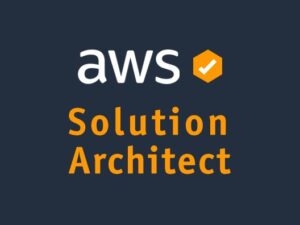Kubernetes Administrator (CKA) Training
In the world of cloud native applications, Kubernetes has emerged as the de facto standard for container orchestration, handling the deployment, scaling, and operation of apps. The demand for qualified Kubernetes administrators has surged as more and more enterprises use Kubernetes to manage containerised applications. The Certified Kubernetes Administrator (CKA) credential is accepted around the world as the standard for experts looking to certify their knowledge in this field. Participating in a CKA training course equips participants with the fundamental knowledge and real-world expertise required to ace the certification test and succeed as Kubernetes administrators.

COURSE HIGHLIGHTS
The goal of CKA training is to make professionals proficient in handling complicated operations in containerised systems, setting security policies, administering Kubernetes clusters, and diagnosing problems. This thorough instruction includes:
- Hands-On Labs
- Extensive Curriculum
- Expert-led meetings
- Flexible Learning Options
- Industry-Relevant workshops and projects
- Intensive Exam Preparation
Training Description
CKA training usually lasts a few days or a few weeks, depending on the teaching style. After introducing the course to the fundamentals of Kubernetes design and key ideas like Pods, Services, and Controllers, students go on to more complex subjects like networking, storage, and security.
1. Kubernetes Basics
The training begins by introducing the foundational concepts of Kubernetes:
● Kubernetes Architecture: The different parts of Kubernetes and their functions in cluster administration are explained to the participants. This contains the worker nodes, which include kubelet and kube-proxy, and the control plane, which is made up of etcd, API Server, Scheduler, and Controller Manager.
● Pods and Containers: You will discover how Pods function as the smallest deployable units inside a cluster and how Kubernetes controls the containers inside of them.
● Namespace Management: To guarantee that participants are capable of handling multi-tenant setups, the function of namespaces in Kubernetes for resource organisation and management is discussed.
This section offers the groundwork for understanding how Kubernetes operates as a distributed system for managing containerized applications.
2. Cluster Installation and Configuration
This is one of the most crucial components of Kubernetes administration. The training includes:
● Configuring a Kubernetes Cluster: Using physical computers, virtual machines, or cloud environments, participants learn how to deploy and configure Kubernetes clusters from scratch.
● Cluster Bootstrapping: This course offers comprehensive instructions on how to set up a
Kubernetes cluster using kubeadm, as well as how to configure kube-apiserver, kube-scheduler, and kube-controller-manager.
● Multi-Node Cluster Setup: This section explains how to set up worker nodes for workload scalability and connect several nodes to the Kubernetes cluster.
Advice on setting up Kubernetes clusters in cloud environments (AWS, GCP, Azure) and on-premise
environments (bare metal or virtual machines).
3. Workloads and Scheduling
Once the cluster is up and running, the training delves into managing workloads and scheduling:
● Deployments, DaemonSets, and Stateful Sets: The creation and management of various workloads using Kubernetes resource objects is covered in training. You will discover how to use Deployments to define and launch applications, DaemonSets to schedule container workloads across all nodes, and StatefulSets to manage persistent applications.
● Managing Batch workload: Discover how to manage batch workloads by utilising CronJobs for recurring scheduled operations and Jobs for one-time tasks.
● Autoscaling: To guarantee that Kubernetes workloads are effectively scaled according to resource utilisation, learn how to set up Horizontal Pod Autoscaler (HPA) and Cluster Autoscaler.
● Scheduling Policies: In order to manage how workloads are scheduled throughout the cluster, this section of the course goes into great detail about the Kubernetes scheduler. Taints and tolerations, node affinity, and pod affinity are just a few of the ideas covered.
4. Networking
The networking lesson delves further into how Kubernetes controls communication amongst components, services, and outside clients:
● Types of Services: Recognise the many service types—ClusterIP, NodePort, and LoadBalancer, for example—that facilitate communication between Pods and outside traffic.
● DNS and Service Discovery: Pods can speak to one another by name instead of IP address thanks to Kubernetes’ internal DNS service. You will get knowledge about how Kubernetesbased service discovery functions.
● Network Policies: In order to provide safe communication inside the cluster, the course will cover the creation and management of Network Policies, which regulate traffic flow between Pods and services at the network layer.
● CNI Plugins: Find out how to manage pod networking with Kubernetes with the integration of Container Network Interface (CNI) plugins. Additionally, you will investigate well-known networking solutions like Weave, Calico, and Flannel.
5. Storage Management
Strong and adaptable storage choices are offered by Kubernetes for ongoing workloads. You will learn
about: Persistent Volumes (PV) and Persistent Volume Claims (PVC) in this module. Discover how to
use PV and PVC to describe storage resources and dynamically provision storage for Kubernetes
applications. Besides, it also helps to learn:
● Classifications of Storage: Whether using networked storage (such as NFS or Ceph), cloud block storage, or local storage, comprehend the function of StorageClasses in dynamically supplying storage based on demand.
● Volume Management: Discover how to mount several volume types into pods, including hostPath, configMap, and emptyDir.
6. Security
Security is critical in any setting using Kubernetes. The course explores safeguarding the cluster and its assets:
● Access Control Based on Roles (RBAC): In order to regulate what users or groups can do within the Kubernetes cluster, participants learn how to construct RBAC policies to manage user permissions.
● Contexts of Security: You will learn about security contexts, which specify the permissions
and access control configurations for containers and pods. Network and Pod Security: Pod Security Standards (PSS), network security guidelines, and encryption to safeguard data while it’s in transit and at rest are all covered in the course.
● Secrets Management: Learn the ways Kubernetes uses Secrets to manage sensitive data, such
tokens and passwords
7. Logging, Monitoring, and Troubleshooting
Kubernetes management requires keeping cluster health up to date and spotting problems early on. This section addresses:
● Logging: Learn how to set up logging systems, such as Fluentd and Elastic Stack (ELK) for centralised logging, to monitor Kubernetes clusters.
● Monitoring: Using Prometheus and Grafana, among other tools, participants will learn how to put monitoring solutions into practice to keep tabs on workloads, resource utilisation, and cluster performance.
● Troubleshooting: Become proficient in resolving typical Kubernetes issues, such as pod failures, node issues, and cluster connectivity concerns. Learn how to debug applications and clusters using tools such as kubectl.
8. Cluster Maintenance
This module covers long-term operations, such as maintaining the long-term health of the Kubernetes
cluster:
● Upgrading the Components: Learn how to upgrade Kubernetes components and clusters in a rolling fashion with the least amount of downtime possible.
● Backup and Restore: To guarantee disaster recovery, use cluster backups and restorations.
● Resource Management and Scaling: Discover how to effectively manage resources using LimitRanges and ResourceQuotas to guarantee appropriate distribution and prevent resource
contention.
What Will You Learn?
By the end of the CKA training, participants will have gained:
1. Proficiency in Kubernetes Fundamentals: A strong grasp of the architecture and elements of
Kubernetes, including etcd, kube-apiserver, kube-scheduler, kubelet, and kube-controllermanager.
2. Efficiency in Cluster Management: Installing, configuring, and overseeing Kubernetes clusters in a production setting is one of the cluster management skills.
3. Workload handling expertise: It refers to the ability to install and scale Kubernetes applications as well as allocate resources.
4. Networking Knowledge: A thorough grasp of Kubernetes networking, including communication setup between pods, load balancing, and service discovery.
5. Best Safety and Security Practices: RBAC, network policies, secret security, and service account configuration are all part of the mastery of Kubernetes security.
6. Proficiency in Troubleshooting: The capacity to identify and fix problems in a Kubernetes environment to guarantee seamless and continuous operations.
7. Cluster Upgrades and Maintenance: The ability to carry out backups, cluster upgrades, and other maintenance procedures.
Pre-requisites
Although system administrators and IT professionals are the target audience for CKA training, the
following qualifications can improve your learning process and make it easier for you to understand
complex concepts:
1. Essential Linux Command-Line Skills: Since Linux is the operating system that powers Kubernetes, it is advised to have a firm grasp of shell scripting, system management, and Linux commands.
2. Knowledge of Containers: It is imperative to have knowledge of containerisation technologies such as Docker, since Kubernetes functions as a platform for container management.
3. Fundamentals of Networking: Gaining an understanding of networking principles such as load balancing, firewalls, and DNS will aid in your comprehension of Kubernetes networking components.
4. Fundamentals of Cloud Computing: While not absolutely essential, knowledge with cloud platforms (such as AWS, Azure, or Google Cloud) might be advantageous, especially when deploying Kubernetes in a cloud setting.
5. Previous Knowledge of Kubernetes: Although not essential, prior exposure to Kubernetes principles and usage is helpful, especially if you’ve worked with a managed Kubernetes service like GKE, EKS, or AKS.
We recommend that the candidates hold the following:
- You’ll need at least a high school diploma or a college degree to enroll in this course.
- A basic understanding of containers and docker is essential.
- Experience with Linux command lines is helpful but not necessary.
- Most importantly, you should have a curious mindset with motivation to learn.
Who Should Attend the Training?
- Cloud Administrators
- Linux Administrators
- Software Engineers
- System Administrators
- Software Developers
- DevOps Professionals
Course Module
- We offer you the most updated and diversified training modules –
- Module 1 Fundamentals of Kubernetes
- Module 2 Mastering Kubernetes for Production Environment
- Module 3 Workload Management with Kubernetes
- Module 4 Kubernetes Networking
- Module 5 Understanding Storage Objects of Kubernetes
- Module 6 Advanced Orchestration with Kubernetes
- Module 7 Security and Troubleshooting Practices
- Module 8 Exploring Cloud-Based Kubernetes Solutions
- Module 9 Preparations for Kubernetes Certification Exam
GET A FREE DEMO CLASS
Choose Your Preferred Learning Mode
1-TO-1 TRAINING
Customized schedule, learn at your dedicated hour with instant doubt clarification and guaranteed sessions.
ONLINE TRAINING
Flexibility, convenience, and time-saving; more effective learning with
cost savings.
CORPORATE TRAINING
Learn anytime, anywhere, across the globe with customized corporate training. Hire a trainer and progress at your own pace.
Why insureTech
Experienced Instructors
Post Training Support
Customized Training
Flexible
Schedule
Access to Recorded Sessions
Frequently asked question
Anyone hoping to become a Kubernetes specialist must enrol in the Certified Kubernetes
Administrator (CKA) Training Program. This course provides hands-on learning, which is essential for
learning how to manage Kubernetes clusters in practice.
Enrolling in the CKA Training Program offers a number of advantages, such as increased job opportunities, industry recognition, hands-on experience, career advancement, expert guidance, and networking opportunities.
Our Training program typically last 15 hour, with flexible scheduling options to accommodate your learning pace.
Yes, we provide.
To enrol in this training, you’ll need a basic understanding of containers and Docker, along with a curious mind and a desire to learn. While experience with Linux command lines is helpful, it’s not strictly necessary.
You must take the CKA Exam in order to become a Certified Kubernetes Administrator (CKA). In partnership with the Linux Foundation.
Yes, we provide.
Yes, you will get all types of support
Yes, you will get comprehensive support and simulation exam opportunities. We provide extensive guidance for clearing the exam successfully on the first attempt.
Yes, you will get it.




